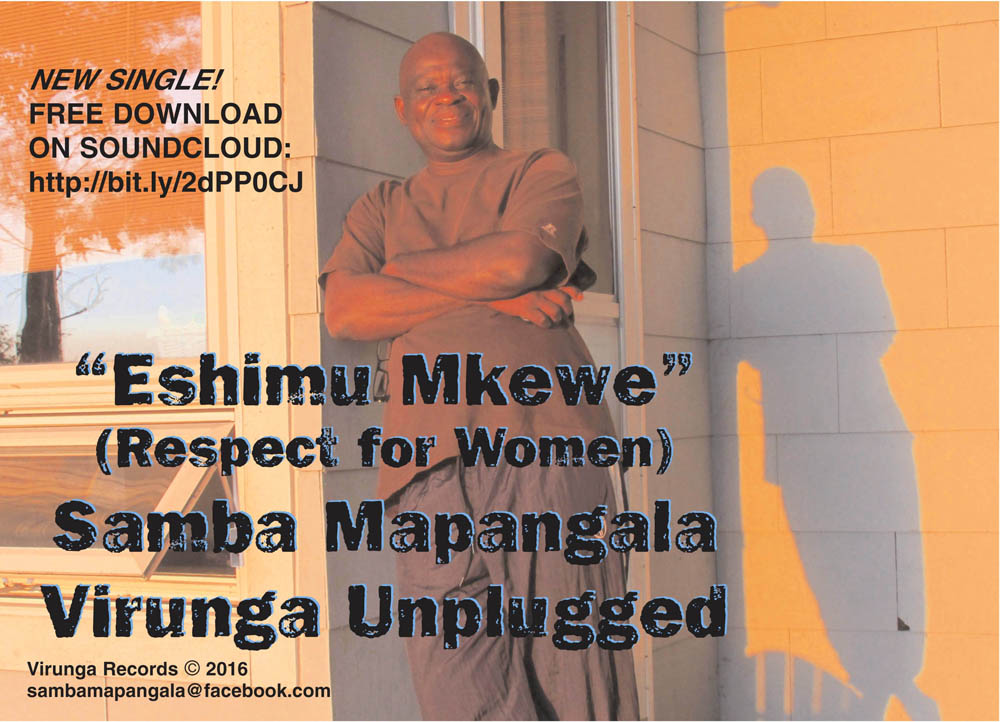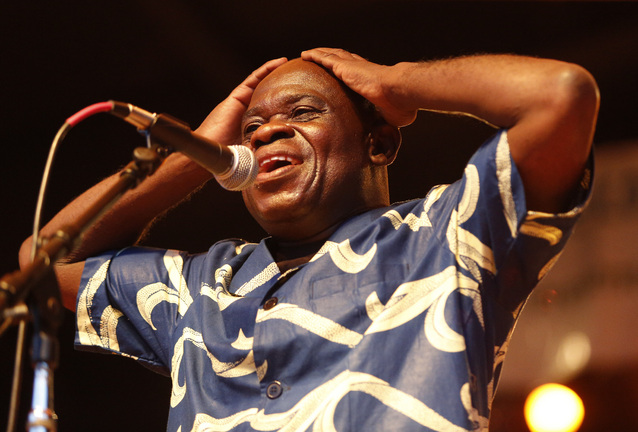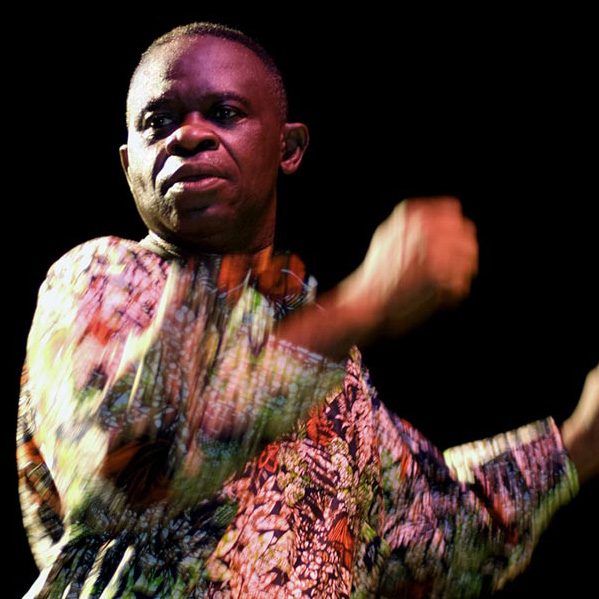Samba Mapangala is a veteran Congolese singer and a terrific composer. He also has a remarkable life, beginning with a youthful career in Congo, but continuing on to his tenure leading bands in Kenya, the U.K., and recently, the United States. This history helps explain how Mapangala can call on the very best Congolese talent, and put together a release as rich, varied, and satisfying as this one. For all the changes over the years, Mapangala preserves a great consistency in his sound. He has a strong dedication to the lyricism and swing of rumba, also a welcome instinct to de-emphasize electronics and keyboards in favor of sharp, melodious guitar work and prominent use of brass, especially his signature accent instrument, the saxophone.
Mapangala remains in superb voice, most notably on “Zanzibar,” a lyrical love song to that enchanted island, where he performed at the Sauti Za Busara festival a few years back. This song includes a tribute to the doyenne of Zanzibar music, the venerable Bi Kidude. Mapangala gets vocal help in the baritone range here from Awilo Mike Otieno Ooko, but it’s his own lead vocal that makes the track. He sounds as strong and soulful as he did on the classic hit songs he created in East Africa decades ago. “Zanzibar,” along with the pumping opener, “Maisha Ni Miatamu (Life is Sweet),” also features splendidly biting lead guitar work from Zaiko Langa Langa veteran Beniko Popolipo. That opener channels a strong Zaiko flavor with taut guitar work, and a big vocal chorus. Magnificent old-school “soukous.”
Other tracks feature the clean, liquid lead guitar work of Tabu Ley Rochereau veteran Huit Kilos. On “Jirani (Neighbors)” with its r&b-cum-reggae lilt, brassy uplift, and lyrical vocal from Mapangala, Huit Kilos’s tone is nothing short of stunning. On one song, “Tupande Miti (Let’s Plant the Trees),” Mapangala ventures a verse in English. It’s a well-meaning love song to trees, under dire threat in so much of Africa, written as a paean to Kenyan environmentalist Wangari Maathai. The English vocal is close, breathy and oddly romantic given the subject, perhaps a tad too sentimental, but the song winds up in a glorious tangle of guitar-driven rhythm.
Mapangala’s ode to the endangered gorillas of Virunga National Park, the sadly besieged refuge that gave his band its name, is a standout here, with a gorgeous vocal performance and more blistering guitar work from Huit Kilos. In all, this is a splendid release, fresh and contemporary, but rich with the best elements of the immortal Congo sound.
-Banning Eyre













